TANDY MC-10
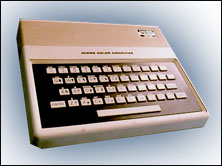 |
The Tandy MC 10 (MC means Micro Color) was designed on Motorola 6803 CPU on 0,89 MHz (the last chip in Motorola's 6800 line). It featured 8 KB ROM and 4 KB (upgradable to 16 KB) RAM. |
| EMULATORS | ||
|---|---|---|
| Virtual MC-10 0.68 | Emulator for Windows (freeware) | Author's page |
| PROGRAM RESOURCES | |
|---|---|
| N/A | ROM images |
DRAGON and TANDY Color Computer II
 |
The Dragon 32 (on the picture) was introduced at the end of 1982 as partialy compatible machine with Tandy Color Computer II. It uses unusual CPU, the 6809E. You could connect a cassette-recorder, a printer and a diskdrive to the computer. The Dragon 64 had a different case, the extended memory and a RS232-C-Interface built-in. |
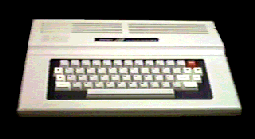 |
The Tandy / Radio Shack TRS-80 Color Computer (CoCo as it is known)
was produced in several versions. The original CoCo was introduced
in 1980. It was based upon a Motorola MC6809E microprocessor and
featured 4 KB of RAM.
The CoCo 2 (on the picture), introduced in 1983, was basically a refinement of the original. It was shipped in 16 KB and 64 KB RAM configurations and perhaps most notable is its ability to run OS9, a true real-time, multi-user, multitasking operating system. The Tandy CoCo 3, introduced in 1986, incorporated a number of significant improvements (the original clock speed was doubled, the CPU appropriately changed to a 68B09E, and a new video/memory-management chip was added). |
| EMULATORS | ||
|---|---|---|
| Return of Coco 0.83a | Tandy CoCo I/II and clones emulator for Windows (freeware) | Authors' homepage |
| PC Dragon II 2.06 | Good Dragon 32/64 and Tandy CoCo II emulator for DOS (freeware) | Dragon & Tandy CoCo Emulator Homepage |
| T3 1.00 | Dragon 32/64 and Tandy CoCo II emulator for DOS (public domain) | Dragon & Tandy CoCo Emulator Homepage |
| PROGRAM RESOURCES | |
|---|---|
| Software archive in UK | ROM images |
TRS-80 MODEL I
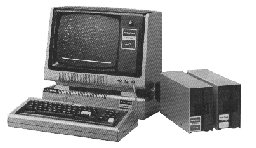 |
In contrast to the CoCo and Model 1000s (the PC clones), the real TRS-80 machines were
all powered by the Zilog Z-80 microprocessor.
The TRS-80 Model I was Radio Shack's first personal computer. It was developed in the late 1970's. The Model I was first made available with either 4 or 16 KB of RAM. |
| EMULATORS | ||
|---|---|---|
| WinTRS-80 2.0 | TRS-80 Model I/III/IV emulator for Windows (freeware) | Distribution page |
| TRSF-80 0.1 | Good TRS-80 Model I emulator for DOS (freeware) | TRSF-80 Homepage |
| PROGRAM RESOURCES | |
|---|---|
| Ira Goldklang's TRS-80 Revived Pages -- software | ROM images |
TRS-80 MODEL III
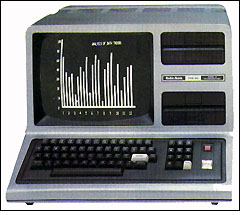
|
The Model 3 was Tandy's second personal computer. One of the reasons it was developed, was because the FCC instituted regulations about the RF emissions generated by computers, and the Model I was completely unable to pass the emission restrictions. |
| EMULATORS | ||
|---|---|---|
| TRS-80 Model I and III emulator 1.10 | Good emulator for DOS (shareware) | Author's page |
| PROGRAM RESOURCES | |
|---|---|
| Ira Goldklang's TRS-80 Revived Pages -- software | ROM images |
TRS-80 MODEL IV
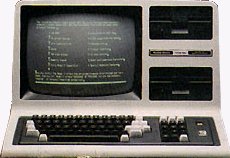 |
The Model 4 had a 64 KB (or 128 KB) RAM and single-sided
double density disks. The Model 4D was basically the same machine,
but it came with double sided disk drives. The Model 4P was portable.
Models 2, 16, 12, 16b, and 6000 (in order of release) were all "business" computers. The main difference between them and the others was in the use of 8-inch disk drives. |
| EMULATORS | ||
|---|---|---|
| TRS-80 Model IV emulator 1.0 | Emulator for DOS (shareware) | Author's page |
| PROGRAM RESOURCES |
|---|
| Ira Goldklang's TRS-80 Revived Pages -- software |
[ SINCLAIR | AMSTRAD | ATARI |COMMODORE | MSX | APPLE | ACORN | ORIC]
[ COLECO | DRAGON/TANDY | COLOUR GENIE | THOMSON | TI | ENTERPRISE ]